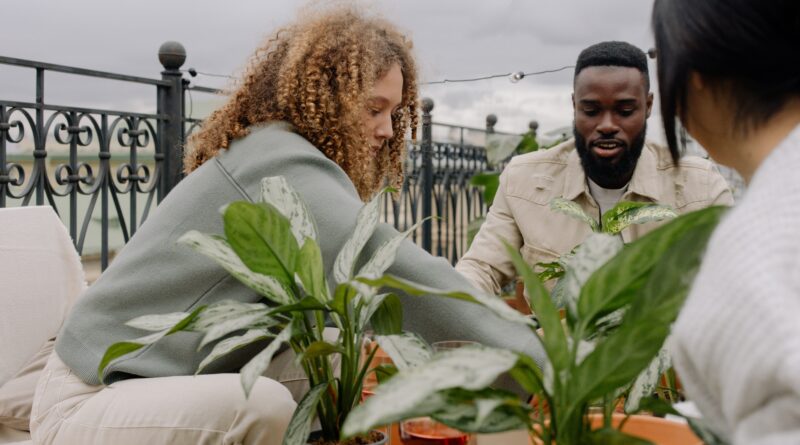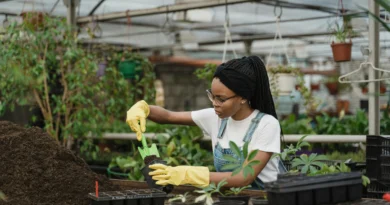10 Essential Gardening Tips for Beginners
[ad_1]
Embarking on the green journey of gardening can be a rewarding and therapeutic experience. Whether you’re nurturing a windowsill herb garden or diving into the world of backyard blooms, these essential tips for beginners will pave the way for a flourishing botanical haven.
Tip #1: Start with Easy-to-Grow Plants
Begin your gardening escapade with a palette of hardy and forgiving plants. Opt for resilient species like marigolds, zinnias, or succulents. These low-maintenance companions will not only boost your confidence but also create a vibrant tapestry in your green sanctuary.
Tip #2: Understand Your Soil
The soil beneath your feet is the foundation of a thriving garden. Conduct a soil test to unravel its secrets. Is it loamy, sandy, or clayey? Tailor your plant selections and amendments accordingly, ensuring a fertile ground for your botanical endeavors.
Tip #3: Provide Adequate Sunlight
Plants are solar-powered beings, and the key to their prosperity lies in basking under the golden rays. Observe your garden’s sun patterns and match your plants’ sunlight requirements. A dance of shadows can be a botanical ballet, ensuring each plant gets its moment in the spotlight.
Tip #4: Watering Techniques
In the realm of gardening, hydration is an art. Master the delicate balance between parched soil and waterlogged roots. Employ deep watering methods, allowing the elixir of life to seep down, nurturing roots and fostering resilience in your green companions.
Tip #5: Mulching for Moisture Retention
Introduce mulch to your gardening arsenal, a secret weapon for moisture conservation. A cozy blanket for your soil, mulch guards against evaporation, suppresses weeds, and enhances the aesthetic allure of your garden bed. Choose organic mulch for an eco-friendly touch.
Tip #6: Regularly Monitor and Control Pests
In the intricate dance of nature, pests may attempt to pirouette into your garden. Keep a vigilant eye, intervening with eco-friendly pest control methods. A harmonious ecosystem is one where your plants thrive without being plagued by uninvited guests.
Tip #7: Pruning and Deadheading
Unleash your inner horticultural sculptor through strategic pruning and deadheading. Remove spent blooms and overgrown branches to channel the plant’s energy into new growth. Sculpt your garden into a masterpiece, where each plant stands as a testament to your nurturing touch.
Tip #8: Understand the Frost Dates
Nature’s frosty breath can pose a threat to your green companions. Know your local frost dates to shield tender plants with blankets or bring them indoors. A preemptive dance with Jack Frost will ensure your garden emerges unscathed, vibrant, and resilient.
Tip #9: Consider Companion Planting
Nature is a masterful choreographer, and companion planting is the elegant ballet of flora. Strategically pairing plants that complement each other can deter pests, enhance soil fertility, and foster a harmonious coexistence within your garden. Explore the balletic nuances of planting partnerships.
Tip #10: Stay Curious and Continue Learning
Gardening is a lifelong expedition, and curiosity is your compass. Embrace the ebb and flow of the seasons, experiment with new plant varieties, and immerse yourself in the wealth of botanical wisdom available. A perpetually inquisitive mindset ensures that your green haven evolves into a tapestry of ever-growing beauty.
Conclusion
As you embark on your gardening odyssey, remember that every seed sown is a step towards creating a flourishing haven. These ten essential tips provide a roadmap, but your journey is uniquely yours. May your garden be a testament to your nurturing spirit and the infinite wonders of the natural world.
Frequently Asked Questions
Q1: How often should I water my plants?
A1: The watering frequency depends on various factors, including plant type, soil, and climate. Generally, it’s advisable to water deeply when the top inch of soil feels dry.
Q2: Can I use any mulch for my garden?
A2: While various mulch types are available, opt for organic mulch like straw, wood chips, or compost. These not only conserve moisture but also enrich the soil as they decompose.
Q3: What is companion planting, and how does it work?
A3: Companion planting involves strategically placing plants that benefit each other when grown in close proximity. This can enhance nutrient uptake, repel pests, and promote overall garden health.
[ad_2]




